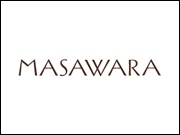War on Jiggies…Local firms seek tarrif protection on corn puff products

 Oliver Kazunga Senior Business Reporter—
Oliver Kazunga Senior Business Reporter—
THE Competition and Tariff Commission has begun investigations into a call by local companies to hike import duty as part of measures to protect firms from imports flooding the market. Local companies recently approached the CTC, a parastatal under the Ministry of Industry and Commerce, with a view to having customs duty on puff and corn products made from grit maize increased.
Under the current tariff regime, some of the products are coming into the country duty free while those from the Common Market for East and Southern Africa are paying 5 percent.
In an update to stakeholders, CTC said the investigation was in line with one of its functions to ascertain whether any tariff charge needs to be revised and the extent of such revision, for the purposes of providing assistance or protection to local industry to address any trade imbalance.
“The commission is therefore undertaking tariff relief investigations into this request and is calling for views on the request from interested parties namely manufacturers of these or similar products, suppliers of inputs used in the production of these products, consumers of the products and any other interested stakeholders,” CTC said.
The tariff commission said the views and information to be submitted should be for at least three years covering the criteria that includes company background, annual quantity of domestic production costs of the product (supported by company records), domestic prices of the product, capacity utilisation levels, employment levels, challenges affecting the industry, proposed tariff levels as well as the sector’s ability to meet the country’s requirements.
Experts fear that the continued influx of imported products if left unchecked would further worsen the plight of local companies already plagued by a cocktail of challenges.
In a bid to stem the influx of fresh produce, the government, through the Ministry of Agriculture, Mechanisation and Irrigation Development, in April banned the importation of South African fresh fruits and vegetables.
Since the adoption of a multicurrency system in February 2009, competition from imported products has been cited as one of the major impediments crippling efforts by local industries to increase capacity utilisation to competitive levels.
According to the Confederation of Zimbabwe Industries, capacity utilisation in the manufacturing sector last year stood at 39.6 percent having declined from 44.9 percent registered the prior year.
The industry representative body has attributed low capacity utilisation levels to factors that include lack of working capital, antiquated machinery, low product demand and competition from imported products, among others.








Comments